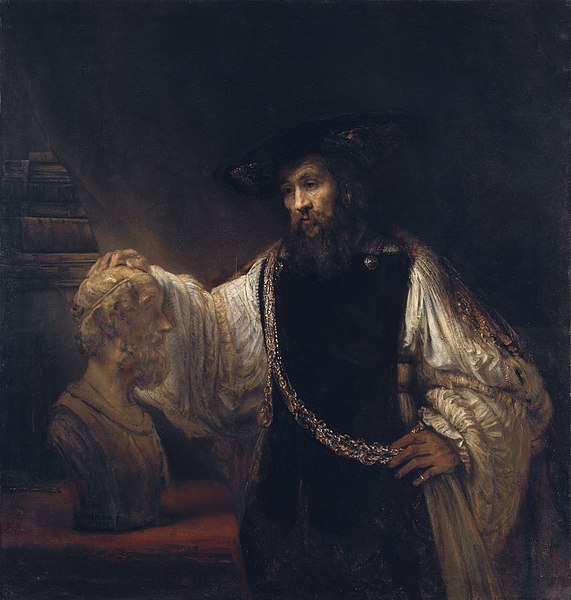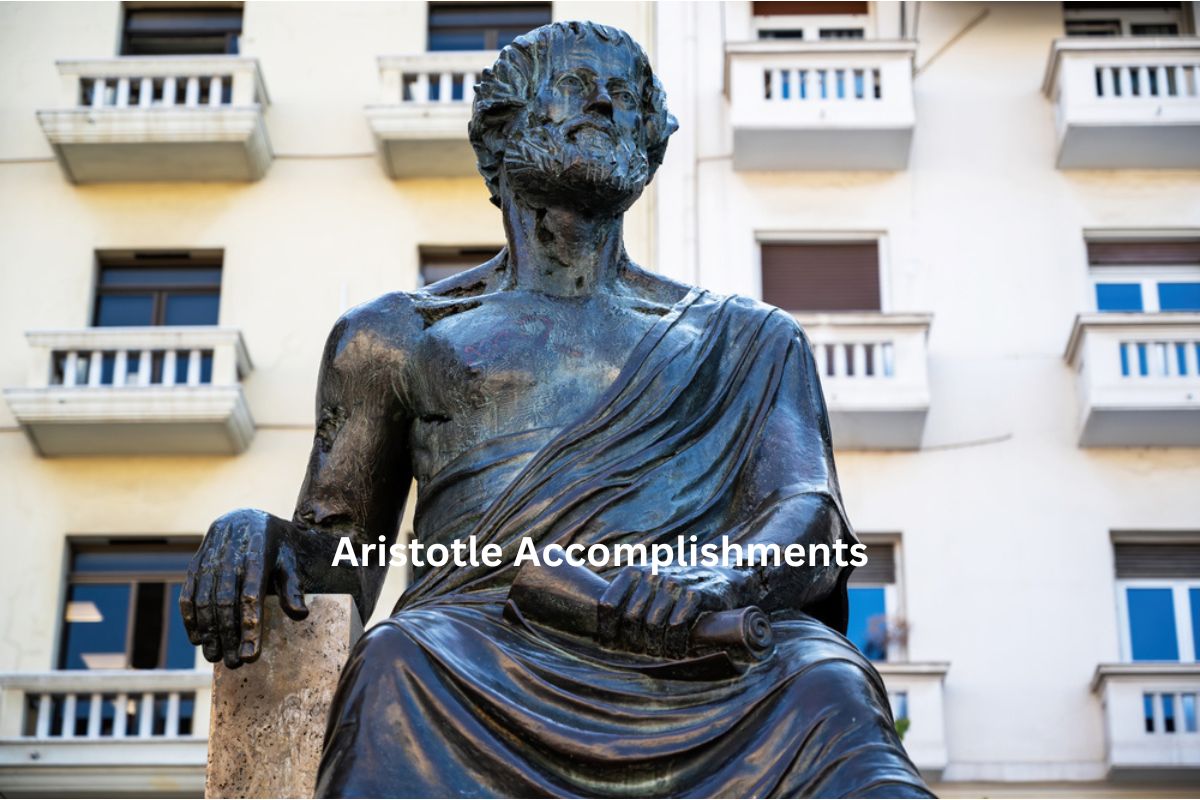Aristotle, born in 384 BCE in the ancient city of Stagira, Greece, was a highly influential philosopher, scientist, and educator. He is often considered one of the greatest thinkers in the Western intellectual tradition and had a profound impact on numerous fields, including philosophy, logic, ethics, politics, biology, and physics.
Aristotle’s career spanned a wide range of interests and accomplishments, making him a polymath of his time. He studied under the renowned philosopher Plato and later became a teacher to Alexander the Great.
His approach to knowledge was characterized by empirical observation and logical reasoning, and he sought to understand the nature of reality, the human condition, and the principles that govern the natural world.
Through his extensive writings, including works like “Metaphysics,” “Nicomachean Ethics,” and “Politics,” Aristotle left a rich and enduring intellectual legacy that has continued to shape human thought and inquiry for over two millennia.
His profound insights into diverse subjects, along with his dedication to rigorous investigation and analysis, solidified his place as a pivotal figure in the history of Western philosophy and science.
Accomplishments of Aristotle
1. Founder of Western Philosophy
Aristotle is widely regarded as the founder of Western philosophy. He studied under Plato and later became a teacher to Alexander the Great.
Aristotle’s philosophical approach differed from his predecessors in that he focused on the empirical observation of the natural world and emphasized the importance of logic and reason in understanding reality.
Also Read: Facts About Aristotle
His philosophical inquiries covered a wide range of topics, including metaphysics, ethics, politics, biology, and physics, and his works continue to be studied and debated by philosophers to this day.

2. Contributions to Logic
Aristotle made significant contributions to the field of logic. He developed a system of formal logic based on deductive reasoning, known as syllogism. Syllogism consists of two premises and a conclusion, and it became the foundation for logical reasoning in subsequent centuries.
Also Read: Timeline of Aristotle
Aristotle’s logical system provided a method for making valid arguments and played a crucial role in the development of scientific and philosophical reasoning.
3. “Metaphysics”
Aristotle’s work titled “Metaphysics” is one of his most important and influential works. In this treatise, he delved into the study of ultimate reality, existence, and the fundamental principles of the universe.
Aristotle explored concepts such as causality, substance, form, and potentiality, aiming to understand the nature of being and the underlying structure of reality. “Metaphysics” had a profound impact on subsequent philosophers and has remained a cornerstone of metaphysical inquiry, shaping the way we think about the nature of existence.
4. Ethics and Virtue Theory
Aristotle’s contributions to ethics and his development of virtue theory have had a lasting impact. In his ethical framework, he emphasized the cultivation of virtues as the key to leading a good and fulfilling life.

Aristotle believed that virtues, such as courage, temperance, and justice, are acquired through practice and habituation. He argued that the ultimate goal of human life is eudaimonia, often translated as “flourishing” or “well-being,” which is achieved through the cultivation of virtuous character.
Aristotle’s virtue ethics provides an alternative approach to moral philosophy that focuses on the development of good character and personal excellence.
5. Contributions to Natural Sciences
Aristotle made significant contributions to various branches of natural science, including biology, zoology, and physics.
He conducted extensive research and observations, classifying and categorizing a wide range of species, studying their behaviors, and examining their anatomical structures.
Aristotle’s work laid the foundation for systematic scientific inquiry and provided a framework for understanding the natural world. He also developed theories on motion, causality, and the nature of physical objects, which were influential in the development of physics.
6. Work on Politics and Governance
Aristotle’s work on politics and governance has been highly influential. In his treatise “Politics,” he analyzed different forms of government, including democracy, aristocracy, and monarchy, and critically evaluated their strengths and weaknesses.
Aristotle emphasized the importance of the common good and argued for a balanced system of governance that avoids extremes. He also discussed citizenship, justice, and the role of education in shaping virtuous citizens.
His political philosophy provided a foundation for subsequent political theorists and has had a lasting impact on political thought and the study of governance. His ideas have influenced concepts such as the rule of law, constitutionalism, and the relationship between the individual and the state.
7. “Poetics”
Aristotle’s work titled “Poetics” is a significant contribution to literary theory and criticism. In this treatise, he explores the nature of literature, drama, and poetry.
Aristotle discusses various elements of storytelling, such as plot structure, character development, and the concept of catharsis, which refers to the emotional release experienced by the audience through the portrayal of powerful emotions in a dramatic work.
“Poetics” has been highly influential in the study of literature and drama, shaping the understanding of narrative structure and the aesthetics of storytelling.
8. Philosophy of Mind
Aristotle’s philosophy of mind delves into questions about the nature of consciousness, perception, and thought. He proposed theories on the relationship between the body and the mind, examining the concept of the active intellect and the nature of mental processes.
Aristotle’s exploration of the mind and its faculties laid the groundwork for subsequent philosophical inquiries into the nature of human cognition and the mind-body problem.
9. Influence on Education
Aristotle’s ideas on education and pedagogy have had a lasting impact. He emphasized the importance of practical and experiential learning, arguing that education should aim at the cultivation of virtues and the development of well-rounded individuals.
Aristotle believed that education should be tailored to the needs and abilities of each individual and should encompass a broad range of subjects, including ethics, politics, sciences, and the arts. His ideas on education have influenced educational theories and practices, emphasizing the importance of a holistic approach to learning.
10. Impact on Western Intellectual Tradition
Aristotle’s works and ideas have had a profound and enduring influence on the Western intellectual tradition. His philosophical and scientific contributions laid the foundation for subsequent developments in fields such as metaphysics, logic, ethics, politics, biology, and physics.
Aristotle’s ideas have shaped the trajectory of Western thought and have been studied, debated, and built upon by countless philosophers, scientists, and scholars throughout history. His influence can be seen in various disciplines, from philosophy and literature to political theory and natural sciences, making him one of the most important figures in the history of Western intellectual tradition.
